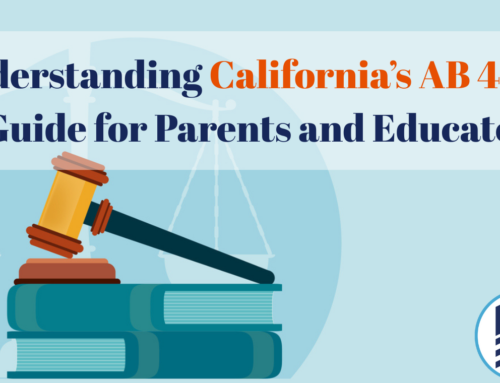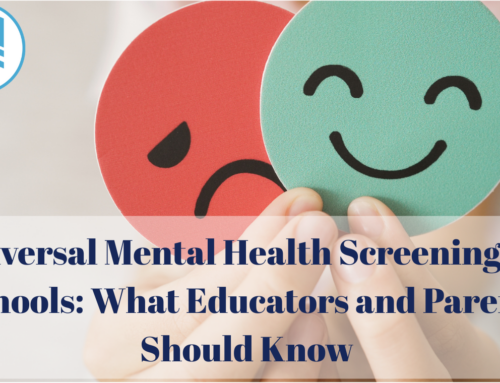
Homeschooling: So easy a parent can do it?
Homeschooling is not a new concept. It has, in fact, been a common educational option for much of American history. Insider observes that many famous and influential historical figures were homeschooled, including Thomas Edison, Alexander Graham Bell, and Agatha Christie.
Education Week notes that educating their children at home is a fairly popular choice for American parents, and the trend is growing. “Nearly 2 million students are being homeschooled in the United States, according to the U.S. Department of Education. For the families who choose to teach their children at home, their reasons for doing so are as diverse as they are.”
Parental Misgivings
Despite its popularity and its long—and largely successful—history, homeschooling in modern America can seem like a daunting task. Some parents move confidently into the role of teacher, energetically throwing themselves into the job with enthusiasm. These parents seem to have it all figured out and know just what to do. Their little prodigies are the envy of their peers, with successes and astounding academic feats strewn behind them as they advance through grade after grade.
However, many parents kick around the idea of home education for months, or even years, before building up the courage to attempt it. Meanwhile, others jump in immediately, only to be overwhelmed once they begin. The concept of being solely responsible for a child’s education can be staggering, but parents should be encouraged!
As with anything worthwhile, homeschooling comes with its challenges and difficulties. However, it’s not as wildly challenging as some may believe. With historical precedent, the age of technology, a supportive community, and resources galore, any dedicated and open-minded mother or father can successfully homeschool their child.
Homeschooling: So easy a parent can do it? YES!
The Correct Tools for the Job
It’s important to use the correct tools while homeschooling. As an educational option, homeschooling offers a wide variety of opportunities depending on parental and student preference, lifestyle choice, personalities, and even learning strengths and weaknesses.
A family’s homeschooling style can help determine what tools are best suited to get the job done. A new homeschooling parent should investigate the various homeschooling types and decide what method best serves their family.
Time4Learning offers an insightful glance into the various homeschooling styles:
- Traditional Homeschooling
- Roadschooling
- Worldschooling
- Unschooling
- Eclectic Homeschooling
- Classical Homeschooling
- Montessori Homeschooling
- Homeschooling with Unit Studies
- Charlotte Mason Homeschooling
- Waldorf Homeschooling
One of the many beauties of homeschooling is that it can evolve and change with the family. While parents may find it helpful to follow a specific method when they first start, this style can change as the family—or even as each child—changes.
Curriculum
Choosing a curriculum is a good place for a new home educator to start. There are an astounding number of curriculum options available to the homeschooling family. They come in all varieties, from creativity-based curriculums to textbooks, from online curriculums to pen and paper curriculums. Parents have their choice of options:
- Crosswalk.com offers an extensive list of options for homeschooling parents looking for a religious-based curriculum.
- For non-religious homeschool curriculum suggestions, Homeschool Made Simple has a terrific list.
- Homeschool Curriculum has compiled an excellent selection of online curriculum options.
Having a structured curriculum can help a parent to feel more prepared. It can be used as a guide and can help the home educator ensure that their child receives a well-rounded education. A sound curriculum is an excellent tool for new homeschooling parents as they embrace the unknown, spearheading their child’s education.
It’s important to note that sometimes homeschooling parents gravitate toward less-structured types of homeschooling. “Unschooling” is one such method, which tends to rely more on the child to absorb the necessary knowledge based on their interests and curiosity. While homeschooling styles like this can be effective, they may not always be a good option for beginners. Parents who are unsure about their own teaching abilities may feel more comfortable using an actual curriculum.
Co-ops
Another excellent tool to have in one’s homeschooling toolbox is the homeschool co-op. A homeschool co-op can offer parents support and can help fill gaps in the child’s education. This terrific tool also provides the child with socialization and fun experiences that they may have missed otherwise.
Parents Magazine explains the idea behind the homeschool co-op: “Defining the term isn’t easy because a co-op can encompass a variety of learning options. At its core, a homeschooling cooperative is made up of several families who meet regularly at libraries, churches, community centers, or homes and work together toward similar goals, which can be based on socialization, education, activities, or any combination of these.”
There are a variety of co-op options. The Homeschool Compass points out that many families use these scheduled meetings for filling in the gaps in their children’s homeschooling curriculum. This time is often spent exploring themed unit studies together or focusing on electives/extracurriculars. Parents can unite in their diversity, offering all of the children the benefit of varied experience and training.
For other families, a co-op is an opportunity to integrate a more conventional classroom setting into the homeschool experience, such as is offered by Homeschool Minnesota MACHE. All of the children use the same set curriculum, with parents often taking turns teaching the children. This offers many benefits of home education while allowing each parent some “time off” when they are not the teacher. This setting also gives the children access to the added expertise, experiences, and training of other adults
Note: The legality of shared teaching responsibilities while homeschooling varies by state. Research your state’s homeschooling and co-op laws before enrolling in a local homeschool cooperative.
Yet another co-op method involves several homeschooling families grouping together and hiring a certified teacher. This option can often give uneasy parents peace of mind, ensuring that a professional is attending to specific educational gaps. Under this model, families share the financial burden to make a private teacher more affordable.
The Homeschool Legal Defense Association has an informative write-up about the types of homeschool co-ops and their benefits. The page also includes a helpful section to help parents find a group in their area.
In summary, co-ops offer various benefits for both parents and children. They are a fantastic option for parents, supplementing their efforts to provide their children with a quality education. In addition, homeschool co-ops allow the homeschooling child interaction and socialization outside of their regular home activities.
Community
Homeschooling parents—from newbies to veterans—all need support and community. It’s important that home educators find a comfortable platform to interact with other homeschooling parents. New relationships can be formed, and parents can learn from each other and share ideas, resources, experiences. In a community, parents support one another. Children can develop close friendships. Based on common goals and shared experiences, the community bonds over a mutual understanding of the benefits and difficulties of educating at home.
Support Groups
According to Homeschool Mastery Academy, “Community is an important part of your homeschool journey. Finding a comfortable fit for your family in a homeschool group …may take some time and possibly some searching. But whatever you choose, be intentional about finding a great group to enjoy the journey with! You will be glad you did.”
The Maryland Homeschool Association defines these support groups as “generally volunteer-based organizations that offer any number of free or for-fee services. Often, homeschool support groups focus on connecting parents by meeting up for mom social time, playground play dates, field trips, and curriculum swaps.”
HomeEducator.com has a wonderfully helpful explanation of the different types of support groups and their functions. As the website states, “Homeschool groups come in many shapes and sizes. With a little research, home educators can understand the types of groups available and easily find one that best aligns with their family’s goals.”
As with so many facets of the homeschooling world, homeschool support groups are varied, with different goals and functions to cater to the family’s needs. Homeschool support groups offer many benefits to the homeschooling family, including:
- Focusing on social and/or extracurricular opportunities
- Offering support to the homeschooling community through informational meetings, social outings, educational field trips, and homeschool related resources
- Providing local field trips and fun group activities
- Giving parents a place to interact with other homeschooling parents consistently to grow their community
Joining and actively participating in a homeschooling support group can offer parents many benefits. New home educators may discover that their local support group can help to dispel some of their misgivings by providing resources and information. Knowledge and support can, in turn, instill confidence that they are qualified to teach their children at home.
Co-Ops
It’s important to note that co-ops can also provide many of the same benefits as a support group. Within some homeschooling communities, co-ops and support groups are distinct. In other communities, the two are mingled, each borrowing characteristics from the other. There may be some similarities between the two options, depending on the local homeschooling community,
Homeschooling: Modern Parents Are Qualified
Homeschooling is a viable option for the modern American family. Parents can ensure that their children receive a well-rounded and quality education with the aid of technology, access to educational materials and curriculum, and support from others.
Numerous online resources, such as Homeschool.com, can help parents maneuver the process and begin their career as home educators on the right foot. In today’s innovative and educationally-minded climate, the homeschooling world is a vast sea of opportunity and accessibility! As a result, parents can move forward confidently, striving to offer their child the very best.
NWEF does not necessarily support or endorse every curriculum mentioned in this blog post.





[…] already actively homeschooling—battle doubts about their abilities and qualifications. (Read more here about what to do if you feel uncertain about […]
[…] How to Homeschool When You Feel Unqualified […]
[…] with anything worthwhile, homeschooling comes with occasional difficulties. However, it’s not as wildly challenging as some may believe. You can take some basic steps to prepare yourself and your family for […]
[…] co-ops come in several different forms. Co-ops are great ways for these kids to experience exposure to nearly any topic, from unit studies […]
[…] are qualified to teach their children, and modern technology has only enhanced their ability to do so. Homeschoolers […]
[…] the very nature of homeschooling seems to lend itself to success, and even the most “unqualified” parents are often relieved to watch their homeschool graduates flourish in […]
[…] even if I tell you not to panic, you probably will…at least a little, right? But, honestly, it’s not that bad! You just need to […]
[…] already actively homeschooling—battle doubts about their abilities and qualifications. (Read more here about what to do if you feel uncertain about […]
[…] co-ops come in several different forms. Co-ops are great ways for these kids to experience exposure to nearly any topic, from unit studies […]
[…] with anything worthwhile, homeschooling comes with occasional difficulties. However, it’s not as wildly challenging as some may believe. You can take some basic steps to prepare yourself and your family for […]